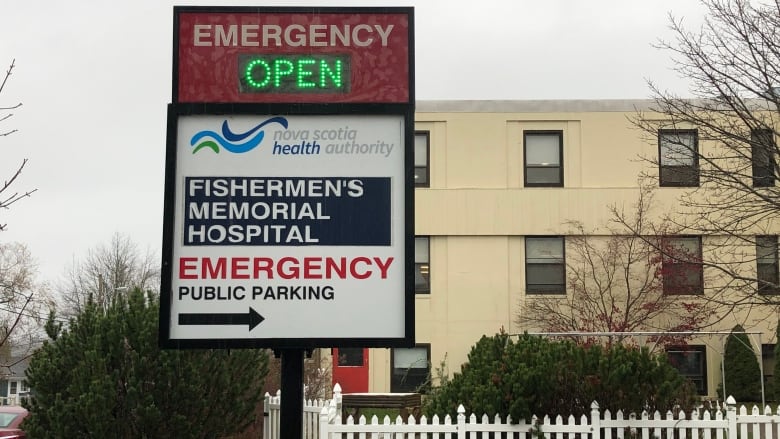Unplanned closure hours rise at N.S. emergency departments for 4th year in a row
Some rural communities see spikes, while others see improvements

Emergency department closures continue to be a stubborn problem in rural Nova Scotia.
The Health Department released its annual accountability reportTuesday for the period ofApril 1, 2019 to March 31, 2020. It shows an increase in unscheduled closure hours for the fourth year in a row, related almost entirely to challenges with staff availability.
In the western health zone, the emergency department at Shelburne's Roseway Hospital was closed for2,659 unscheduled hours, up from 1,719 hours over the same period in 2018-19.
There were also big jumps in unscheduled closures at Fishermen's Memorial Hospital in Lunenburg (1,409 hours compared to257.5);the Annapolis Community Health Centre in Annapolis Royal (1,534 hours compared to261); and Soldiers Memorial Hospital in Middleton (770 hours compared to 100).
Digby sees improvement
The one bright spot in the zone was Digby General Hospital, where unscheduled closures decreased year over year. Thanks to the incorporation of three nurse practitioners, the emergency department logged 203 hours ofunscheduled closuresin 2019-20, down from 1,101 over the previous period.
"I believe that this bodes very, very well for the future," Health Minister Leo Glavinesaid Tuesday in an interview.
Collaborative emergency centres in the northern zone, which perpetually deal with unscheduled closures, also saw improvements in 2019-20.
In Springhill, unscheduled hours fell to 2,295 from 3,177 in 2018-2019,whilePugwash saw hours drop to 2,402 from 3,132. Parrsbororecorded a smaller decrease 2,249 unscheduled closure hours, down from 2,511.
The easternzone saw notable increases at the Strait Richmond Hospital inEvanston(2,164hours compared to 906);the Victoria County Memorial Hospital in Baddeck (1,579 hours compared to 72); and the St. Anne Community and Nursing Care Centre in Arichat (1,615 hours compared to 758).
Overall closure hours up
The Glace Bay Health Care Facility, which is chronically plagued by unscheduled closures, also saw an improvement with3,911 hours in 2019-20compared to 5,554 in 2018-19.
Notable changesin the central zone includeEastern Shore Memorial Hospital in Sheet Harbour, where unscheduled closure hours in 2019-20 dropped to 3,252 from 3,654 over the previous period.
TheMusquodoboit Valley Memorial Hospital in Middle Musquodoboit, however, saw a significant jump(2,089 hours,up from 508), as didTwin Oaks Memorial Hospital in Musquodoboit Harbour(567 hours, up from197).
Overall, there were 33,019 unscheduled closure hours in 2019-20 compared to 26,259 in 2018-19.
Government eyes potential solutions
Despite the closure numbers, the health ministersaid emergency departments at the province's regional hospitals and tertiary sites are never closed. They're also the locations where the most pressing emergencies are handled, regardless of whether a community hospital's emergency department is open.
"I feel our emergency requirements are very, very well met,"said Glavine.
He addedthe emerging prominenceof virtual carethis year for non-emergency casesshould help reduce the number of tripspeoplemake to emergency departments.
The Health Department noted in its reportthat a recently signed contract that makes emergency department doctors in Nova Scotia the highest paid in Atlantic Canada should help with recruitment efforts. The emergency departments at community hospitals and other small sites are typically staffed not by emergency medicine specialists, but by family doctors who have additional training in emergency medicine.
The Health Department isalso hoping to see benefits from increased training seats at Dalhousie University's medical school, more community-based residency opportunities, more nurse practitioner training seats and an emergency department locum program.
MORE TOP STORIES












_(720p).jpg)


 OFFICIAL HD MUSIC VIDEO.jpg)
.jpg)



























































































